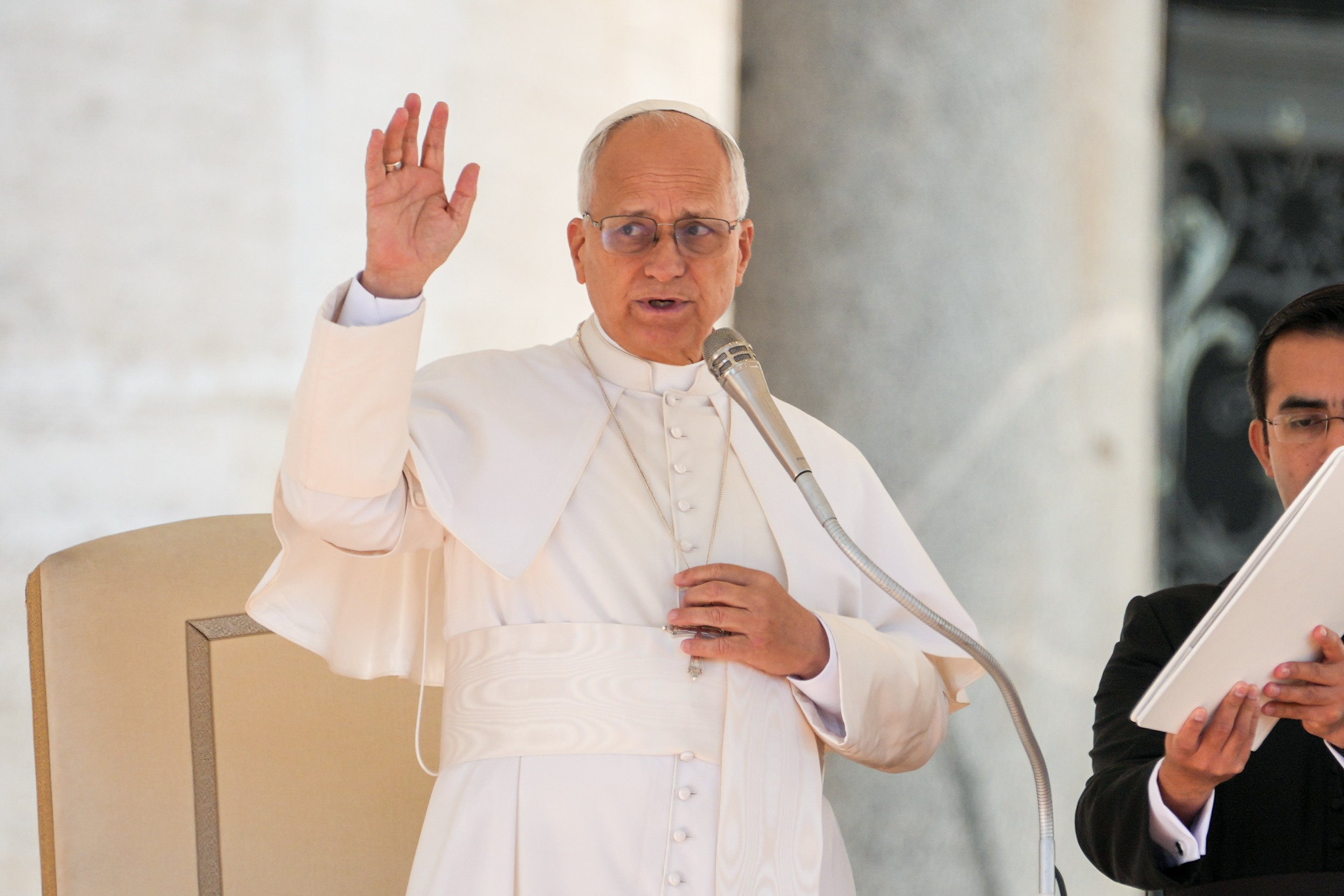September 18, 2019 at 4:06 p.m.
Siena College will commemorate the 800th anniversary of the encounter between St. Francis of Assisi and the Sultan starting this month, while celebrating the legacy of its late president, Brother Edward Coughlin.
The Franciscan college will hold a series of lectures and panel discussions, talking about when St. Francis of Assisi famously met with Sultan al-Malik al-Kamil in 1219 near Damietta, a port on the Nile River near the Mediterranean Sea. Interestingly enough, the diversity center on the Siena College campus is named the Damietta Cross-Cultural Center.
“This past summer our president, Brother Ed, died so the lecture series is a way to honor the life and legacy of Brother Ed Coughlin by the commemoration of the encounter between St. Francis of Assisi and Sultan Al-Kamil,” said Fr. Mark Reamer, OFM, and Guardian of the Siena Friary.
“There would be three things that (Brother Ed) would always seem to hit on when he talked: That, as Franciscans, we ought to be peacemakers, we ought to serve generously and build relationships.” The lecture series begins Thursday, Sept. 19, at 7 p.m. in Roger Bacon Hall 202 with “Christians and Muslims Encountering Each Other Over Scripture” and is sponsored by the University of Notre Dame Hesburgh Lecture. It is followed by a panel discussion titled “The Saint and the Sultan: The Crusades, Islam and Francis of Assisi’s Mission of Peace” on Thursday, Oct. 3 at 4:15 p.m. at Sarazen Student Union; and the last panel discussion is titled “Damietta as a Model for Dialogue” on Sunday, Nov. 3, at 2:30 p.m. at Roger Bacon Hall 202.
There are two schools of thought on why St. Francis visited the Sultan at Damietta, crossing the field of battle during a brief respite in the carnage: He was either trying to convert the Sultan to Christianity, which was most certainly true, or trying to bring about peace in the midst of the brutal Crusades. The truth usually lies somewhere in between, because there is no recollection of it in Muslim texts, and very little is known about what transpired between the two men.
“(The) encounter took place 800 years ago, in what I would say was a dark time in the Church’s history, in terms of the Crusades that were taking place in which the Pope was calling for a Holy War,” Father Reamer said, “and Francis, because of his own experience with war, knew how horrific war was … and he saw the role of the Church and himself as peacemakers.
“And Francis went into enemy territory and, as far as we know, Francis did not speak Arabic and the Sultan did not speak Italian, but somehow they spent some days together and encountered each other and entered into some sort of interfaith dialogue. They grew to respect the other person as an individual but also their own faith traditions.”
St. Francis obviously has a big fan in Pope Francis, who became the first pontiff to visit an Arab Gulf State when he traveled to the United Arab Emirates in February.
When the Pope met Sheikh Ahmad el-Tayeb, the grand imam of al-Azhar, and signed a declaration with him on promoting “human fraternity” and respect, Catholic News Service reported “the pope said he thought providence had wanted “a pope named Francis” to mark the anniversary of Damietta.”
The Pope also visited Morocco in March to promote interfaith dialogue, fraternity and respect of one’s religion. These traits are in short supply on the world stage and it seems the world needs someone like St. Francis of Assisi now more than ever.
“Francis was one who sought the common ground; let’s begin with what we have in common,” Father Reamer said. “Often times we have more in common than we do in difference … I think that commonality, that is a great beginning particularly if you look at respect for the dignity of the individual and in Francis’ life that was embracing the leper.
“Francis, through his own prayer and real conversation, came to recognize the dignity of the individual and embrace the leper. He said in his testament: ‘What was once bitter to me became sweet.’ That’s where he was willing to go beyond himself and open himself up to the other in a way that most of us tend to be tribal people, where we stay in our tribe, whether it be yellow, red, blue or green.”
- Pope Leo’s first six months: revolution of kindness with a missionary impulse
- ‘Statements alone are not enough’: Bishops exhorted to action on immigrants
- Weigel: Jimmy Lai’s ‘witness to human dignity’ an ‘expression of his faith’
- Bishops will consecrate US to Sacred Heart of Jesus for 250th anniversary of its founding
- Alleged apparitions of Jesus in Dozulé, France, not supernatural, Vatican says
- Caribbean bishops plead for peace amid US strikes, military buildup
- UPDATE: House to vote on shutdown deal; Catholic groups urge action on health insurance
- Seeing everyone as a brother or sister is part of Christianity, pope says
- US bishops consider revisions to Catholic health care guidelines on ‘gender interventions’
- Precedent, compromise mark Coakley-Flores leadership elections








Comments:
You must login to comment.